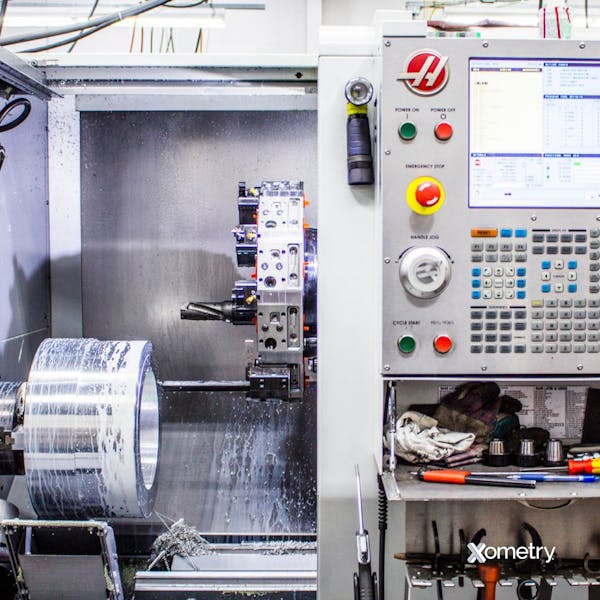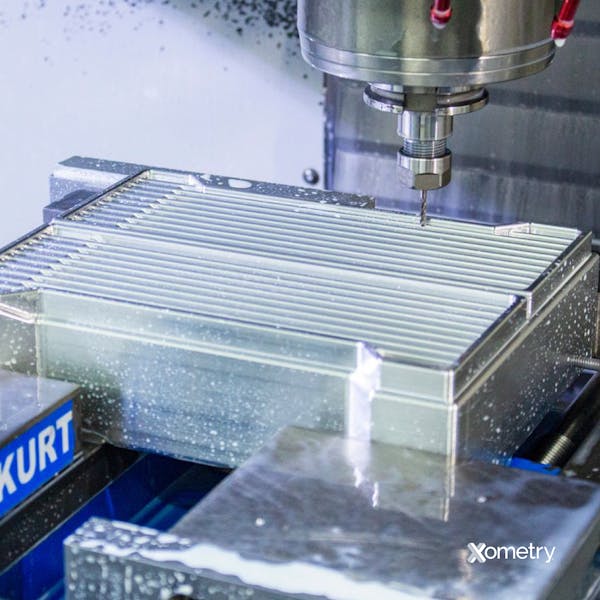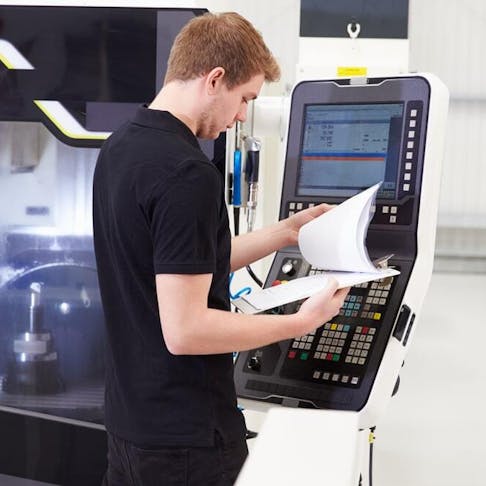CNC machining, or computer numerical control machining, is a manufacturing process that utilizes computer-aided machines to cut metal or other materials into intricate patterns and shapes. It offers many unique benefits that make it a valuable technology for a wide range of industries.
Among the outstanding CNC machining benefits for machinists is that it allows them to re-shape and redesign existing parts without having to start from scratch. When they do create a part from scratch, they do so through CAD (computer-aided design) software which enables them to make very intricate designs with minimal wasted material. This method of machining can reduce waste and save money thanks to the computer’s capabilities and automation, instead of relying on human operators. Additional valuable differences make themselves plain depending on the application. In this article, we'll look at some of the top CNC machining benefits.
1. CNC Machining Generates Minimal to No Waste
CNC machining is not only efficient, but it can also minimize material wastage thanks to its precision and accuracy. As long as the part is designed properly in the computer, the machine itself will almost never make faulty cuts, so there will be fewer damaged parts to discard. The machine can handle precise cuts and angles without generating much waste.
2. CNC Machining Is More Accurate and Has No Defects
One of the major CNC machining benefits is accuracy. Because CNC machines receive precise instructions from a computer — and the movements are similarly carried out under computer control — their results will be identical each time and will match the computer model closely. This is a huge advantage when it comes to creating parts with tight tolerances. This capability almost entirely eliminates human error from the equation.
3. CNC Machining Offers More Rapid and Effective Production
Another industry-cornering CNC machining benefit is the inherent speed and efficiency of production. CNC machines are capable of producing products much more quickly and efficiently than traditional methods. Many modern units can even load the billet and unload the completed product without human intervention. Naturally, this capability leads to significant cost savings and increased productivity. In addition, this sort of automation makes parts more consistent.
4. CNC Machining Makes Assembly Faster
Products whose components are created under computer numerical control are simpler to assemble. Because CNC machining is so precise and consistent, companion parts will fit together exactly as they do on the computer. And since the process is quicker than manual machining, you’ll spend less time waiting for parts to be completed. Unless there is a problem in the computer model, all parts should fit together perfectly. This capability can save a lot of time and money in the assembly process, as there is no need for extensive fitting and adjustment.
5. CNC Machining Separates Machines From People And Reduces the Risk That Would Otherwise Arise
CNC machining removes significant safety risks from the shop floor. By automating the machining process, you can eliminate many of the hazards associated with manual machining. In addition, CNC machines are typically enclosed, which further reduces the risk of injury.
6. CNC Machining Uses Little Energy
CNC machining uses less electricity than older processes, thereby reducing energy consumption. In fact, according to the EPA, CNC machining uses about one-seventh of the energy of traditional machining methods. There are multiple reasons; CNC machines not only work quickly but draw less power per minute than most other manufacturing methods.
7. CNC Machining Can Reduce Production Costs
CNC machining is an economical, efficient, and precise process of manufacturing parts and products. CNC machining also uses fewer raw materials in comparison to conventional machining. Focusing your shop around CNC technology will drastically reduce errors, production expenditures, and product costs.
Figure 1 is an example of a CNC machine:

What Is CNC Machining?
CNC machining is a subtractive manufacturing process used to create parts by removing material from a workpiece or workpiece stock. Preprogrammed software and codes are fed into the machine to control the movement of its equipment. CNC machining covers a wide range of machinery such as: turning mills, lathes, grinders, and plasma-cutting machines. Figure 1 is an example of a CNC machine:
The first CNC options on the market were for milling. CNC milling machines perform complicated operations on materials such as metal, glass, plastic, and wood. These machines have many different features and capabilities that allow them to create intricate shapes, cut out designs, and even engrave words onto products. Though very expensive in the 1970s and ‘80s, today’s CNC machines are much cheaper and are becoming increasingly popular among hobbyists and professionals alike.
What Is the Importance of CNC Machining?
CNC machining is critical in today’s industrial environment for its ability to produce accurate, repeatable, and affordable products. The method enables items that would be impossible or prohibitively expensive to fabricate using other manufacturing techniques. For example, CNC machining is one of the finest ways to guarantee perfectly constructed telecommunications equipment such as heat sinks, microwave tower parts, and amplifier housings. The method enables the precise design and manufacture of intricate mechanical parts while taking into consideration technical specifications, component dimensions, and geometry.
How to Choose a Good CNC Machine
There are a lot of things to consider when choosing a CNC machine for yourself. Here are some tips to consider:
- Project Goal: Consider the project's goal before anything else. A CNC router will probably be the best option if wood is your main material. A CNC plasma cutter is the finest choice if you aim to work on metals.
- Cost: Bear the price in mind. Cost includes both labor and maintenance costs in addition to the machine’s price.
- Machine Weight: Take into account the machine's weight. Cast iron construction is best if you’re tackling heavy-duty, difficult tasks. If not, alternative lighter-weight equipment will usually work.
- Power: The power rating of the equipment is yet another crucial factor. This will influence your cost analysis and must also fall within the capabilities of your facility’s electrical system.

Where Does CNC Machining Offer the Best Benefits?
CNC offers the best benefits when the following are among your top goals:
- More accurate parts than you can achieve with traditional methods.
- Products with very consistent dimensions.
- Production of a large number of parts.
- Creation of complex designs.
- Reducing manufacturing costs.
What Industries Gain the Most from CNC Machining?
The following industries gain the most from CNC machining:
- Medical
- Electronics
- Publishing
- Transportation
- Woodwork
- Construction
- Agriculture
- Aerospace
- Manufacturing
- Automotive
- Firearms
- Metalwork
How Is CNC Machining Used?
Computer numerical control is a complex process that can be used to control many types of machinery. These machines range from grinders and lathes to mills and routers. They can produce a variety of components, such as molds and machined metal parts.
Summary
Xometry provides a wide range of manufacturing capabilities including CNC machining, 3D printing, injection molding, laser cutting, and sheet metal fabrication. Get your instant quote today.
Disclaimer
The content appearing on this webpage is for informational purposes only. Xometry makes no representation or warranty of any kind, be it expressed or implied, as to the accuracy, completeness, or validity of the information. Any performance parameters, geometric tolerances, specific design features, quality and types of materials, or processes should not be inferred to represent what will be delivered by third-party suppliers or manufacturers through Xometry’s network. Buyers seeking quotes for parts are responsible for defining the specific requirements for those parts. Please refer to our terms and conditions for more information.

